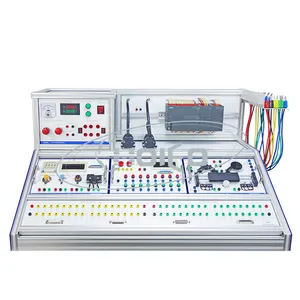Introduction to Automation Studies
Automation studies encompass a crucial interdisciplinary area that focuses on the theoretical and practical aspects of automating processes across various industries. With the increasing reliance on technology, understanding automation studies allows businesses to enhance efficiency, reduce operational costs, and improve productivity. As organizations continuously seek to optimize their workflows, knowledge of automation systems becomes indispensable for professionals in fields such as manufacturing, logistics, and information technology.
Types of Automation Studies
There are several categories within automation studies that professionals can explore, each providing unique insights into optimizing different processes. These include:
- Industrial Automation: Focuses on automating manufacturing processes, utilizing robotics and control systems to enhance production efficiency.
- Process Automation: Involves the automation of repetitive business processes, helping organizations streamline their operations and improve accuracy.
- Office Automation: Encompasses the use of software and hardware solutions to automate tasks like scheduling, correspondence, and data management within an office setting.
- IT Process Automation: Refers to automating IT-related processes such as system monitoring, incident response, and cloud management to enhance the efficiency and reliability of IT services.
Applications of Automation Studies
Automation studies hold substantial relevance across diverse industries. By understanding how to leverage automation, organizations can effectively implement these techniques to optimize their operations. Key applications include:
- Manufacturing Sector: Automating assembly lines and quality control processes reduces human error while increasing output speed and consistency.
- Healthcare: Robotics and automation systems manage patient information and streamline medical supply logistics, greatly enhancing the efficiency of healthcare delivery.
- Logistics and Supply Chain Management: Automated systems optimize inventory management and distribution processes, facilitating timely deliveries and reducing costs.
- Finance and Accounting: Automation in data entry and transaction processing minimizes the time spent on manual tasks, allowing finance teams to focus on strategic decision-making.
Advantages of Studying Automation
Engaging in automation studies can yield numerous advantages for both individuals and organizations. These benefits include:
- Enhanced Efficiency: Automated systems significantly reduce the time and labor involved in repetitive tasks, leading to improved overall productivity.
- Cost Reduction: By decreasing the reliance on manual processes, organizations can lower labor costs and minimize the chances of costly errors.
- Improved Accuracy: Automation helps ensure that tasks are executed with a high degree of precision, resulting in more reliable outcomes.
- Increased Competitiveness: Organizations that implement cutting-edge automation solutions are better positioned to compete in their respective markets through innovation and efficiency.










































